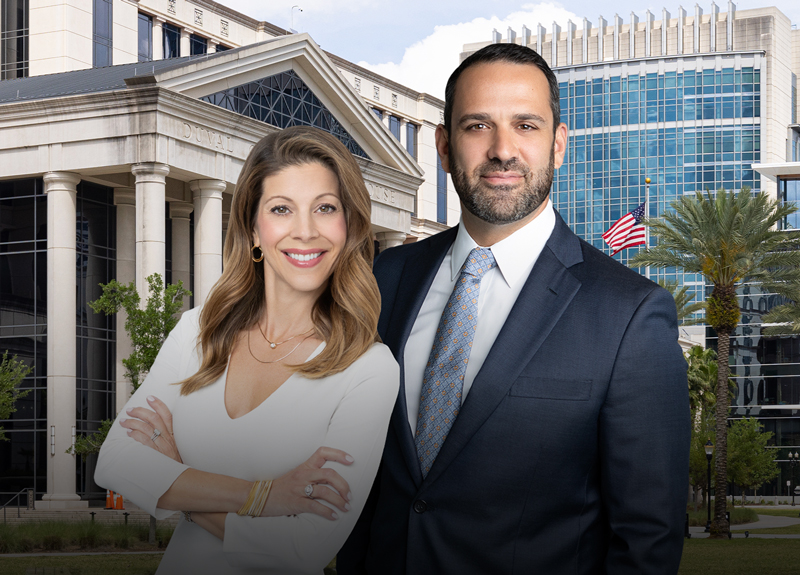Golf Cart Safety in Jacksonville

Residents, workers, and golfers across Florida use golf carts. Golf carts are particularly suited for use on golf courses and in active living neighborhoods, mobile home parks, and even theme parks — all places where people need to cover a lot of ground safely.
But golf carts are deceptively dangerous. The U.S. has over 18,000 golf cart accidents annually. Nearly 15% of these crashes result in death or permanent disability.
Here are some ways you can operate your golf cart safely and legally in Jacksonville.
Low-Speed Vehicles and Golf Carts
Florida distinguishes between low-speed vehicles (LSVs) and golf carts. The distinction is the maximum speed. Golf carts cannot exceed 20 miles per hour. LSVs can travel up to 25 miles per hour.
Although it does not seem like much, this difference creates two completely different sets of rules.
Golf carts can only travel on “golf cart roads.” These roads exclude highways intended for vehicle traffic. But they can include some roads and sidewalks with city authorization.
When a highway divides a mobile home park, subdivision, or golf course, a golf cart may be able to cross it but not otherwise drive on it. Golf carts can only be used during daylight hours, and operators must be 14 or older, but they do not need a driver’s license.
LSVs can use roads with speed limits of 35 miles per hour or less. You must title, register, and license an LSV. You must also meet the same insurance requirements as a vehicle owner.
Operators of LSVs must have a driver’s license. In addition, LSVs must be equipped with headlights, brake lights, and turn signals. They must also have a rearview mirror.
Safety Tips for Golf Carts and LSVs in Jacksonville
Golf carts and LSVs must contend with several risks. While on roads and crossing roads, they can get hit in a car accident. When using golf cart paths and roads, they risk causing pedestrian accidents and bicycle accidents.
Here are some safety tips to reduce the risk of accidents:
1. Understand Your Local LSV and Golf Cart Policy
Florida law leaves a lot of space for local regulation of LSVs and golf carts. Cities can decide whether to allow the following:
- Road use
- Sidewalk use
- Night use
- Highway crossings
You should learn your local government’s laws on golf carts and LSVs. These policies usually come out of experiences and studies about the safest way to handle these decisions.
2. Cross Only at Intersections and Designated Crossings
When you use your LSV or golf cart, follow the local ordinances. In particular, you should cross highways only at intersections and designated crossings.
The city picks the locations for crossings based on visibility. Since LSVs and golf carts travel much more slowly than other vehicles, you need a highly visible location to cross, or you risk getting hit.
3. Do Not Modify Your LSV or Golf Cart’s Motor
You can modify the motor on your LSV or golf cart. But you should avoid the temptation for a few reasons:
- You could exceed the speeds permitted by Florida law
- You will stress other parts of the LSV or golf cart, such as the suspension or brakes
- Your LSV or golf cart lacks the safety equipment to go faster than designed
Consider swapping your golf cart or LSV for an all-terrain vehicle (ATV), utility vehicle, or mini-truck if you want more power.
4. Add Lights to Your Golf Cart
Florida does not require golf carts to have headlights. But you might want to add headlights anyway.
If your area allows night use, you will need headlights, brake lights, and turn signals to drive at night. Even during the day, headlights can help identify your cart at highway crossings or in the shadows alongside wooded roads.
5. Using Your Golf Cart or LSV Safely
Golf cart and LSV safety rules can help you avoid accidents or minimize the damage and injuries resulting from an accident. As fun as they may be, golf carts and LSVs are not toys and should be handled safely to the benefit of all road users.
Contact the Jacksonville Golf Cart Accident Law Firm of Baggett Law Personal Injury Lawyers Today For Help
For more information, please contact the Jacksonville and Ponte Vedra golf cart accident law firm of Baggett Law Personal Injury Lawyers at the nearest location to schedule a free consultation today.
We serve in Duval County, St, Johns County, and its surrounding areas:
Baggett Law Personal Injury Lawyers – Jacksonville
9471 Baymeadows Rd #105,
Jacksonville, FL 32256, United States
(904) 396-1100
Baggett Law Personal Injury Lawyers – Downtown Jacksonville
121 W Forsyth St Suite 1000,
Jacksonville, FL 32202
(904) 822-4225
Baggett Law Personal Injury Lawyers – Ponte Vedra
480 Town Plaza Ave #130,
Ponte Vedra Beach, FL 32081
(904) 675-1167

